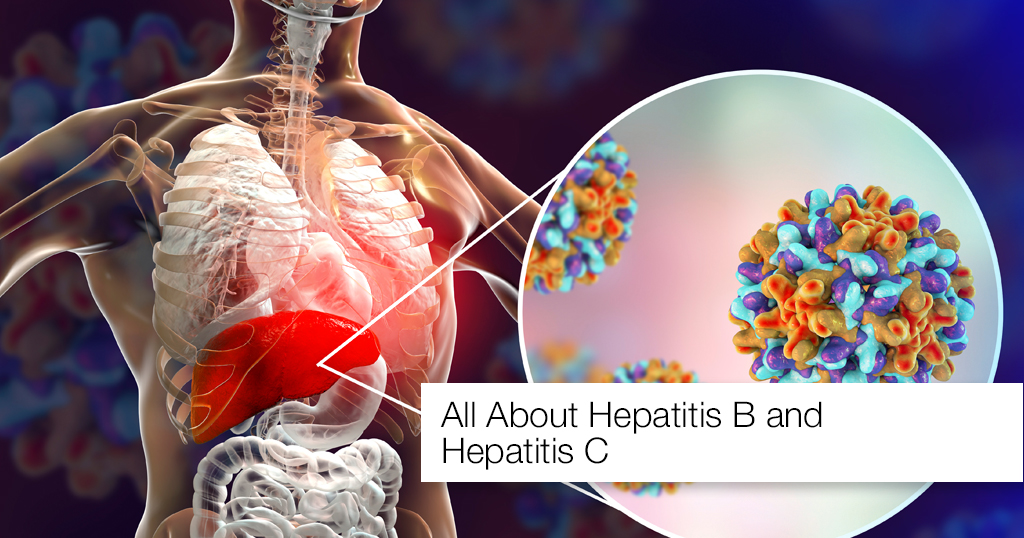Dr Sudeep Khanna, MD, DM
Sr. Consultant, Gastroenterology
Apollo Indraprastha Hospital, New Delhi
Hepatitis B
Hepatitis B is a liver infection caused by the HBV (hepatitis B virus). HBV is transmitted when body fluids like semen, blood or other fluids from an individual infected with this virus enter the body of an uninfected person. The risk for lifelong infection is linked to age at the disease – about 90 per cent of infected babies become chronically infected, compared to 2 –6 per cent of adults.
Chronic Hepatitis B can cause serious health issues, such as cirrhosis or liver cancer. Vaccination is the best way to prevent hepatitis B. In India, 2-7 out of every 100 persons carries HBV infection. If 100 adults develop acute hepatitis B as manifested by nausea, vomiting, loss of appetite and jaundice with very high AST/AT levels on liver function test, more than 90 per cent of these patients will clear the virus, over a period of two years. Adults who do not clear HBV and children with chronic infection need lifelong monitoring.
Hepatitis B Diagnosis
There are various tests available for HBV infection. HBsAg and anti-HBc total are the most frequently done screening tests. All pregnant women, any kind of health care worker, all family contacts of patients with HBV infection need to be tested for HBV infection and vaccinated if negative.
Hepatitis B Treatment
There are oral medicines available which are safe and effective in controlling the replication of the virus and hence preventing life-threatening complications in most of the cases. These medicines have to be continued for many years.
Hepatitis B Complications
The complications of acute hepatitis include liver failure which may need liver transplant. Chronic infection can progress to cirrhosis which can be complicated by cancer of the liver, massive vomiting of blood, fluid in the abdomen, infections, altered mental status and death without liver transplant
Hepatitis B Prevention
All new borns should receive HBV vaccination. Vaccination of all health care workers is mandatory and their antibody levels should also be checked/monitored. All pregnant mothers should be screened for HBV infection, and newborn babies of infected mothers should receive adequate prophylaxis to prevent transmission of HBV to the infant. All blood products should be screened thoroughly for the presence of HBV infection. Do not share blades, tooth brushed and needles, use condoms if there are multiple sexual partners.
Hepatitis C
Prevalence of hepatitis C infection-HCV seroprevalence rates in community-based studies among the general population, blood donors, and pregnant women were 0.85 per cent, 0.44 per cent, and 0.88 per- cent, respectively. Among the high-risk groups, pooled anti-HCV seroprevalence rates were as follows:
- People with HIV infection- 3.51 per cent
- Persons on maintenance hemodialysis- 19.23 per cent
- People who inject drugs- 44.71 per cent
- Patients who have received multiple blood product transfusions-24.06 per cent
The prevalence is around 4 per cent in people with high-risk sexual behavior. Approximately 6 per cent of children born to mothers with HCV will acquire the infection during the last three month of pregnancy or during delivery. The risk for HCV transmission is 11 per cent for children born to women who also have HIV. HCV transmission after birth is extremely unlikely unless the mother is breastfeeding and has bleeding or cracked nipples.
Hepatitis C Presentation
Most of the patients acquiring HCV virus would remain asymptomatic and the infection would be picked up on routine testing of abnormal liver function test. Acute infection may present as unexplained tiredness with elevated AST/ALT on LFT. All patients with acute HCV have to be treated. Chronic HCV infection is generally asymptomatic. Signs of liver damage may be picked up on ultrasound done for some other abdominal problem. If the liver disease progresses unchecked, it will lead to cirrhosis and its complications as discussed above, necessitating a liver transplant.
Hepatitis C Diagnosis
HCV infection is diagnosed by a simple blood test known as anti-HCV. If the test is positive, the level of the virus in the blood is calculated using HCV-RNA (QUANTITATIVE) test. In immunocompromised patients as in patients with cancers on chemotherapy and post-transplant patients on immunosuppression, HCV –RNA must be tested even if anti-HCV is negative.
Hepatitis C Treatment
There are safe directly acting antiviral drugs now available which will eradicate the virus in more than 95 per cent of the infected patients. For patients who have had one or the other complications of cirrhosis, a liver transplant would be needed in the future.
Hepatitis C Prevention
Safe sex, avoiding intravenous drug abuse, screening of blood products and screening of all pregnant women and periodic screening of patients with renal failure on dialysis is mandatory.


















